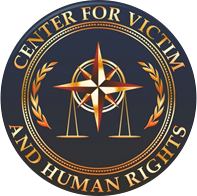Where in the World are the CVHR Law Clerks?
Elaine McCreery on her trip to Haiti
 For the past year, I have been a law clerk at the CVHR, working alongside its lawyers and learning about the legal options available to victims of crimes like domestic violence and human trafficking. Through this work, I have grown passionate about serving victims. In March, I had the opportunity to combine that developing passion with an older love of Haiti and its people. I travelled to LaMare, Haiti, with Nou Hope, an organization that serves communities in Haiti’s Central Plateau.
For the past year, I have been a law clerk at the CVHR, working alongside its lawyers and learning about the legal options available to victims of crimes like domestic violence and human trafficking. Through this work, I have grown passionate about serving victims. In March, I had the opportunity to combine that developing passion with an older love of Haiti and its people. I travelled to LaMare, Haiti, with Nou Hope, an organization that serves communities in Haiti’s Central Plateau.
LaMare is a small, remote village, about a half an hour away from the nearest town. Most government services are not available to villages that far out in the country. No electrical lines run to LaMare, and a well and outhouses are the only options for plumbing. To go to the hospital, sick people must catch a ride into town, or perhaps even farther. LaMare has no courthouse or jail, and when you ask the citizens of LaMare if they can reach the police in an emergency, they just laugh.
 In this isolated environment, lack of access to services promotes community, and the citizens care for each other. The partnership with Nou Hope has strengthened their caring culture, as community-based projects have increased access to education, healthcare, water, and employment, thereby stimulating development and inspiring local leadership. Now that trust has been built between Nou Hope and the community, programs to address more delicate issues are possible, which is where I came in.
In this isolated environment, lack of access to services promotes community, and the citizens care for each other. The partnership with Nou Hope has strengthened their caring culture, as community-based projects have increased access to education, healthcare, water, and employment, thereby stimulating development and inspiring local leadership. Now that trust has been built between Nou Hope and the community, programs to address more delicate issues are possible, which is where I came in.
On March 14, which was fittingly #MyFreedomDay, I led a Women’s Seminar on domestic violence and human trafficking. I trained the women on what domestic violence is, why it occurs, and why victims remain in abusive relationships. The women were engaged in the training and asked specific questions about how to safely approach and help a victim. This enthusiasm for grassroots safety efforts is paramount for long-term victim safety, especially given the general lack of access to law enforcement and formal justice in the area.
Regarding human trafficking, I emphasized that even though it occurs in every country of the world, it exists at an alarmingly high rate in Haiti due to the vulnerability of the nation’s poor. I trained the women to identify signs of human trafficking, armed them with prevention strategies, and encouraged them to report trafficking to community leaders. The training resonated with the women, who are painfully aware of the ways in which the poverty of Haiti is taken advantage of by criminal opportunists.
Later that afternoon, I also spoke about human trafficking to the teenagers at the LaMare school. With them, the fact that minors are often the targets of human trafficking was emphasized. A desire to better themselves forces young people from poor, rural villages like LaMare to seek educational and employment opportunities in metropolitan areas, leaving them susceptible to scams making false promises of prosperity. Armed with information on how to avoid such dangerous exploitation, ideally, the teenagers of LaMare will be able to choose safe options for their future.
As economic conditions in LaMare change and improve, the lives of its citizens are changing, too. They are organizing to tackle life’s various problems together as a community. This community spirit, coupled with training about crime and safety, will empower LaMare to speak out against domestic violence and human trafficking on Haiti’s Central Plateau.


